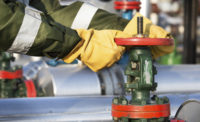Oil, gas industry reps get up to speed on biofuels sustainability

 Representatives from the oil and gas industry, government inter-governmental organizations, non-governmental organizations (NGOs), consultants and educational institutes met in Brussels, Belgium last month for a Biofuels sustainability standards and regulations workshop.
Representatives from the oil and gas industry, government inter-governmental organizations, non-governmental organizations (NGOs), consultants and educational institutes met in Brussels, Belgium last month for a Biofuels sustainability standards and regulations workshop.
Speakers triggered interesting discussions around the challenges and opportunities of the different biofuels certifications and regulations. The workshop provided an opportunity to review the status of regional regulations impacting biofuels sustainability certification and assess the implementation of standards and voluntary schemes around the world. It also compared biofuels sustainability with similar initiatives undertaken by other industries and reviewed the status of Indirect Land Use Change discussions in Europe.
The event was hosted by IPIECA (the global oil and gas industry association for environmental and social issues)and CONCAWE (the oil companies' European association for environment, health and safety in refining and distribution).
Topics included: bioenergy and agriculture; regulatory expectations for sustainability schemes; basics of biofuel certification and sustainability standards; how to implement sustainability schemes and measure the impacts of voluntary standards and certification schemes; learning from experiences in other industries; mechanisms to achieve the desired outcomes and creating sustainable and scalable solutions.
Participants also got updates on European discussions on Indirect Land Use Change (ILUC) and SWOT analysis (strengths, weaknesses, opportunities and threats) for the existence and development of sustainable biofuels.
Looking for a reprint of this article?
From high-res PDFs to custom plaques, order your copy today!





